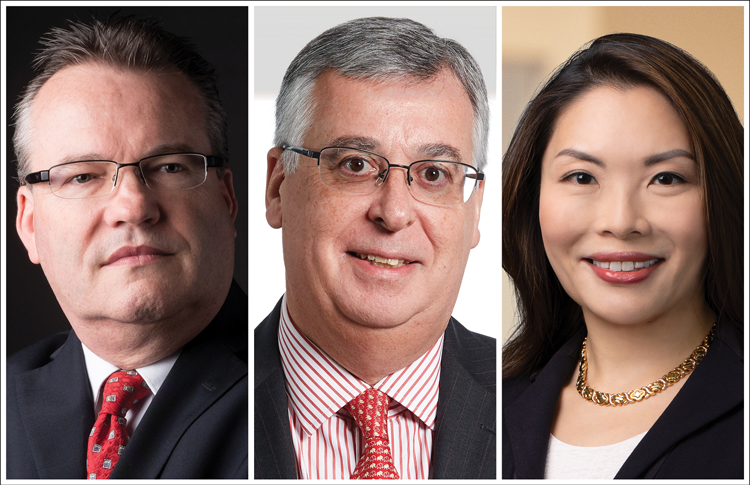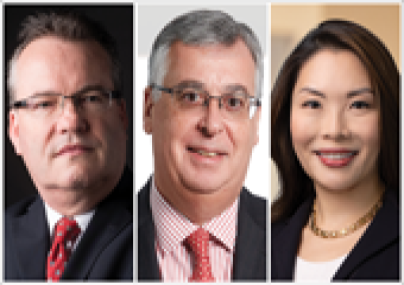
As another year packed with challenges and trials draws to a close, law firm leaders consider what measures were successful, and how those will influence their strategies for 2022 and beyond.
—
WHAT LESSONS WILL YOU TAKE AWAY FROM 2021, AND HOW WILL YOU EMPLOY THESE NEXT YEAR?
MARTIN GREEN, Singapore managing partner, Stephenson Harwood
Work and home life have co-existed under the same roof for so many of us during the last 18 months, that the boundaries between the two have noticeably blurred.
Combined with the sheer enormity and unpredictability of the pandemic, it’s little wonder that people are reconsidering their work-life balance and what they value, not only in terms of their work, but also in relation to what their firms offer. That’s why Stephenson Harwood recently launched “The Deal,” a two-way pact between the firm and our people - what we promise to provide, and what we expect in return.
We recognised that in today’s law firms different people want different things. Careers are more dynamic than they have ever been and it’s normal for people to move between organisations. What matters is that each of our people has the best possible experience while they’re at Stephenson Harwood, and, if they do leave us, that they do so with genuine goodwill all round.
For businesses like ours, this is an opportunity to turn the ‘great attrition’ into the ‘great attraction. By attracting and retaining the best legal talent we’re able to deliver the quality of work, and level of service, which clients tell us is more normally associated with larger ‘elite’ firms. That’s the challenge: to make sure that we offer a flexible, people-centric approach, while delivering outstanding client service and legal advice. Our people are at the heart of our business – that will remain the case in 2022, just as it has before.
KEITH BRANDT, Hong Kong managing partner, Dentons
Aside from continuing political developments, one of the most profound influences on business activity in Hong Kong over the last 12 months, has been the failure to lift restrictions on travel, affecting Hong Kong’s borders, depriving connectivity and access to clients in China and internationally.
Although technological developments and improved communication platforms have assisted in connecting people in different countries, absence of physical meetings continues to be a barrier to building close relationships during the pandemic. Through recent determined outreach efforts, Dentons has conducted interviews with our global clients to ascertain clients’ evolving needs in this ever and fast-changing business environment. Simply, law firms of the future need to provide more than just legal advices, we need to provide real business solutions which are aligned with how our clients see the world. Our response is to launch a new client engagement strategy in 2022 by speaking with our clients with purpose about who we are, what we do and how we can help the organisation to grow everywhere.
Underpinning this is the need to translate this methodology across all we do, including specific training and webinars bringing all our capabilities to clients across regions. On the one hand, advanced technology helps us with communications during the pandemic, but on the other hand, it has also created a raft of new challenges surrounding data privacy issues. Our clients, colleagues and stakeholders trust us with their information. Respect for privacy and the protection of personal data is not only a legal requirement, but also an essential client consideration when they engage with legal service providers. Dentons has striven to significantly improve our system security including providing mandatory data privacy training to over 20,000 employees around the world.
SHIRIN TANG, Singapore managing partner, Morrison & Foerster
For MoFo Singapore, 2021 has been another year of working from home whilst juggling personal commitments, including periods of homeschooling for those with school-aged children. However, despite all of that, I truly appreciate the sheer resilience of the MoFo team, their dedication to teamwork and collaboration and their continued willingness to find solutions to our clients’ needs, despite the ongoing challenges of remote working.
The majority of our clients are long-time clients who come back to us time and again, because our complementary practices guarantee a collaborative, seamless service. We invest the time and effort to get to know our client’s business and objectives and act as an extension of their team to identify risks and find solutions. For example, on an Asia buy-out of a technology business, MoFo will deliver an on-the-ground combined team of private equity, finance, tax, compliance and technology attorneys, often with additional expertise drawn from our other offices in Asia and worldwide.
We’ve always revelled in this level of collaboration across practice groups and offices, but 2021 has taken it to a new level, which is particularly meaningful given our inability to meet in person or to travel. To deliver this level of service, our team has often worked very long hours, taken calls at all times of the day and worked relentlessly. This dedication has been recognised through the awards we have received. Regardless of whether remote working continues, or we go back to the office, I know that our team’s drive to collaborate, whilst being resilient and tenacious, will continue into 2022 and beyond.
